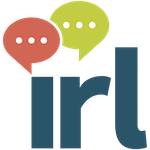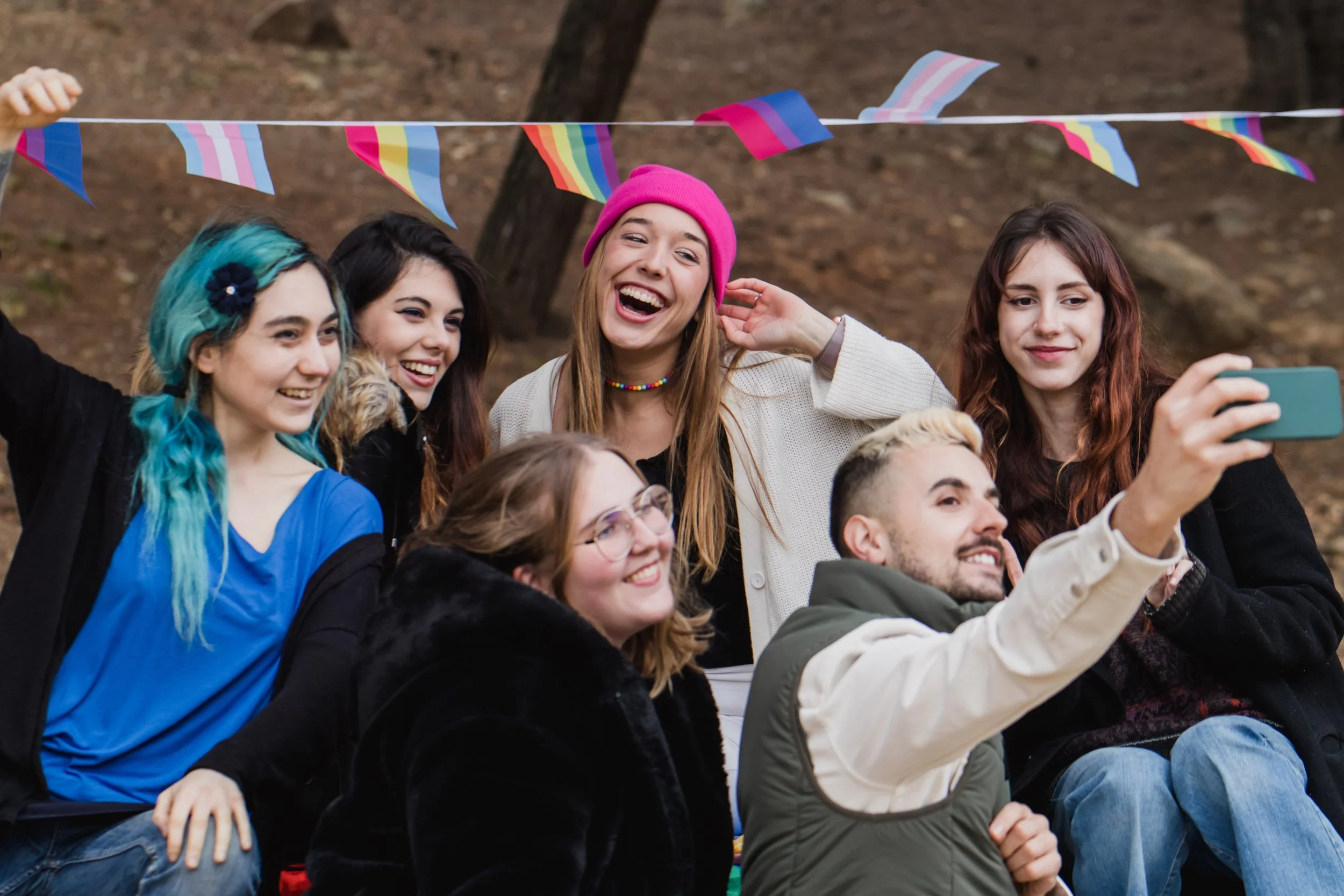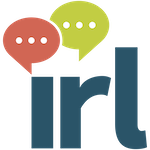Welcome to IRL Social Skills Academy
EVERYONE NEEDS CONNECTION. Friends. Family. Peer support. Safety and belonging. Neurodivergent people often struggle to make connections, communicate effectively, or engage with others socially. These difficulties can result in having trouble making friends, securing stable work, adjusting to college, dating and intimacy.
Most interventions for autistic youth are focused on elementary school children. But as kids transition through middle and high school, into college or the workplace, those supports all but disappear, just when relationships and communication become more complex.
IRL Social Skills provides specialized coaching for autistic, neurodivergent, or socially struggling teens and young adults—just when they need it the most.
MARA McLOUGHLIN, MS, CCC-SLP
FOUNDER & LEAD FACILITATOR
SCHEDULE A FREE 15-MINUTE ADMISSIONS CONSULT
Discover how IRL Social Skills can help your teen or young adult succeed at school, in college, at work, and in family and personal relationships. Book a 15-minute consult to learn more about our programs and take the next step toward supporting your loved one’s growth and wellbeing.
How can we help you?
Fill out the form below and we’ll follow up to answer all your questions. If there’s a best time to call or you prefer email over telephone, let us know.
We look forward to connecting with you!
How IRL Skills Academy Courses Work
Classes meet weekly via Zoom for 16 weeks (4 months), allowing for ongoing contact with coaches, instructors, and peers. The first 15 minutes of class is a group activity for all parents and students before separating into breakout rooms.
Students receive the didactic skills education with a group of age-appropriate peers where they practice the skills and receive support. The parent or caregiver breakout room covers the same information the student is learning, along with tips for modeling and coaching the skills at home for greatest impact.
INCLUDED IN EVERY COURSE:
Trauma-informed nervous system education
Mindfulness practices
Interoception skills for co- and self-regulation
How to effectively use electronic forms of communication (and minimize bullying)
Skillful use of humor and assessment of humor feedback
Starting, entering, and exiting conversations between peers
Making friends based on common interests (e.g. games, art, music)
How to organize successful get-togethers with friends
Dating etiquette and how to develop healthy romantic relationships
How to self-advocate with authority figures, teachers, etc.
Our courses are geared toward the autistic neurotype but non-autistic individuals have found our courses and workshops to be very beneficial for improving communication skills.
Cost
The cost for our 16-week Social Skills Programs is $3999. That all-inclusive price covers:
16-weeks of specialized neurodivergence-affirming support for both students AND parents
PEERS® curriculum—the only scientifically validated, proven-effective curriculum developed at UCLA
Three-and-a-half hours of coaching (1.75hrs for students, 1.75 hours for parents/social coaches)
Small groups, typically 8-12 families per class, allowing for maximum benefit and personalization
Expert educators, therapists and clinicians with over 50 years combined expertise working with autistic and neurodivergent populations
Two coaches for each breakout room (four coaches per class)
All class materials, handouts, and reference materials
Support outside the classroom
We are private pay and do not accept insurance. However, we can provide a sample superbill and share with you some strategies to seek reimbursement from your insurance provider. Many states are now legally required to pay for services such as ours, but many families are not yet aware of the new laws.
Payment plans may also be available.
EYE-OPENING AND TRANSFORMATIVE
“As a mom of a teen on the spectrum, I will be forever grateful to the coaches who prepared me with knowledge and tools to be a good support/coach for my son. It was also a big eye opener to me when I realized how much help he really needed. Also, the parents who joined the group with similar goals were exceptionally supportive and kind. It was a pleasure to be part of this class and I would recommend it to any teen or young adult who is struggling socially.”
MAROHA S – PARENT PARTICIPANT
Support for your child. Support for you.
Our program is unique and holistic—integrating mindfulness practices, self-advocacy, and self-regulation. We also add brain education, specifically about the autistic neurotype and teach students how to tune in to their feelings in the body and know what they mean (interoception).
The skills we coach has a domino effect, with positive changes rippling through the entire family. In fact, several parents have suggested that our courses could be considered a “family communication intensive”.
Our team of skilled coaches teaches social skills based on the The Program for the Education and Enrichment of Relational Skills (PEERS®) program*, a highly effective, clinically proven social skills curriculum that honors your child’s unique personality, gifts and needs.
MAKING NEW FRIENDS WITH LESS SOCIAL ANXIETY
“As a learner, I got a lot out of this program. I no longer struggle as much with going up and talking to people or making new friends. I'm not nearly as uncomfortable in social situations. IRL helped me to understand why I was having difficulties before. I learned the steps to have more enjoyable social interactions and connections. Overall, IRL Social Skills was a great experience.”
KEVIN V – YOUTH STUDENT
*PROVEN EFFECTIVE
The Program for the Evaluation of the Enrichment of Relational Skills (PEERS) was developed by UCLA's acclaimed Semel Institute for Neuroscience and Human Behavior. PEERS is critically acclaimed for providing evidence-based social skills treatment to youth and adults with autism spectrum disorder (ASD), attention deficit/hyperactivity disorder (ADHD), anxiety, depression, and other socio-emotional problems. The program has been peer-reviewed by the psychiatric community many dozens of times, and confirms the efficacy of the program.
SOURCE: National Institute of Health, National Library of Medicine. American Psychiatric Association. Diagnostic and statistical manual of mental disorders




